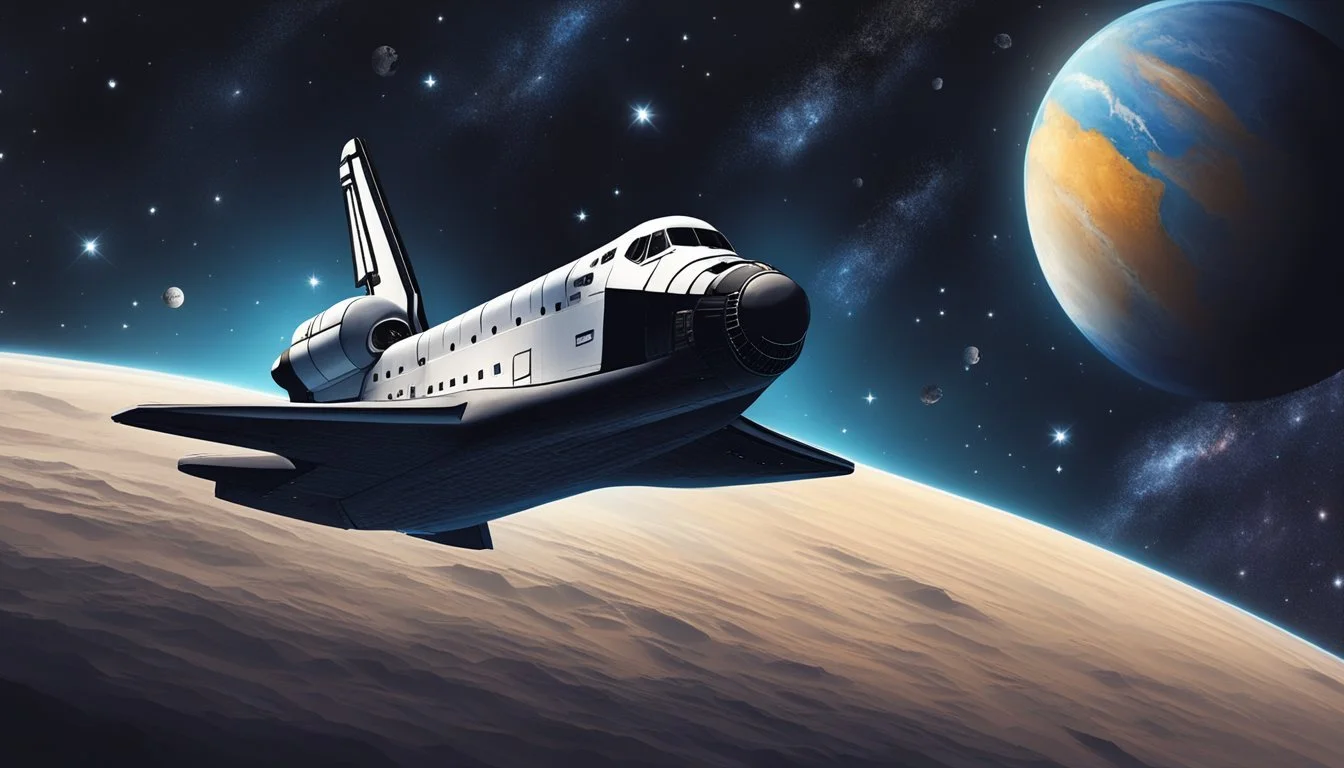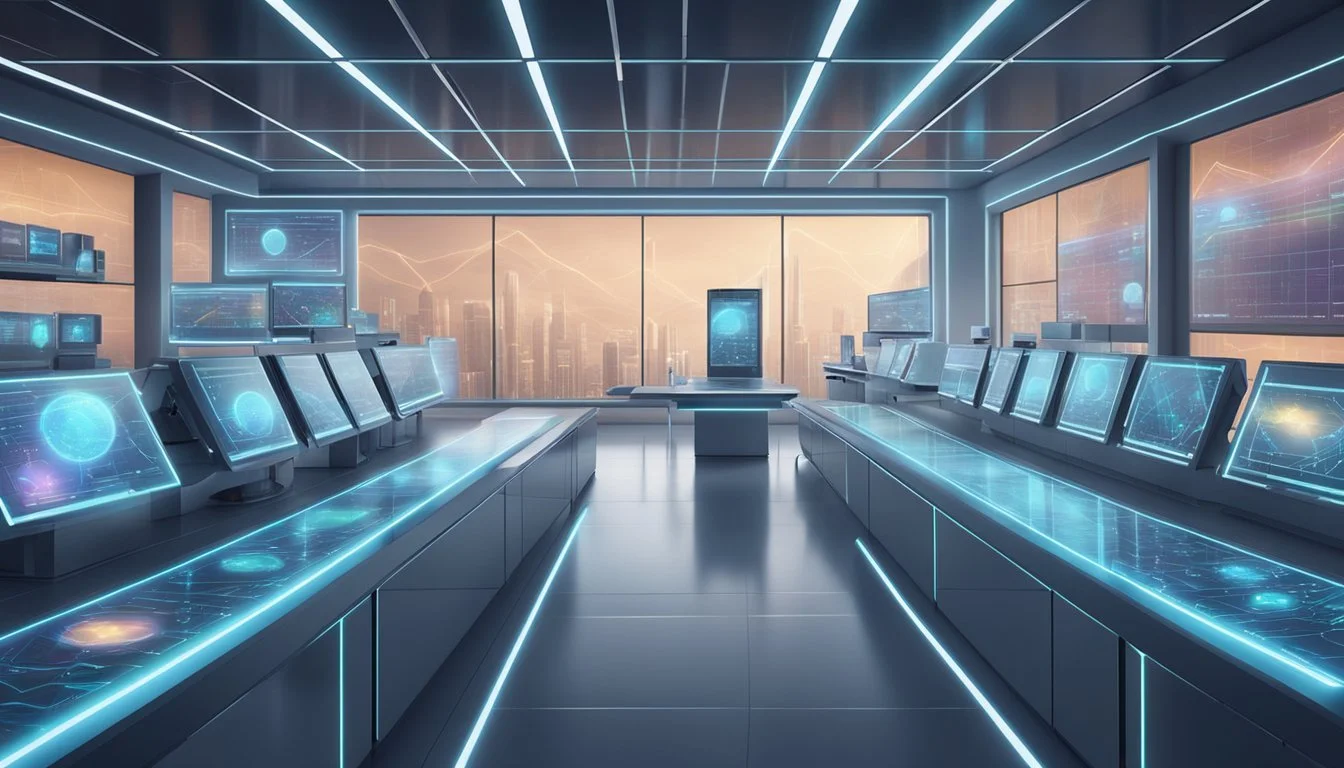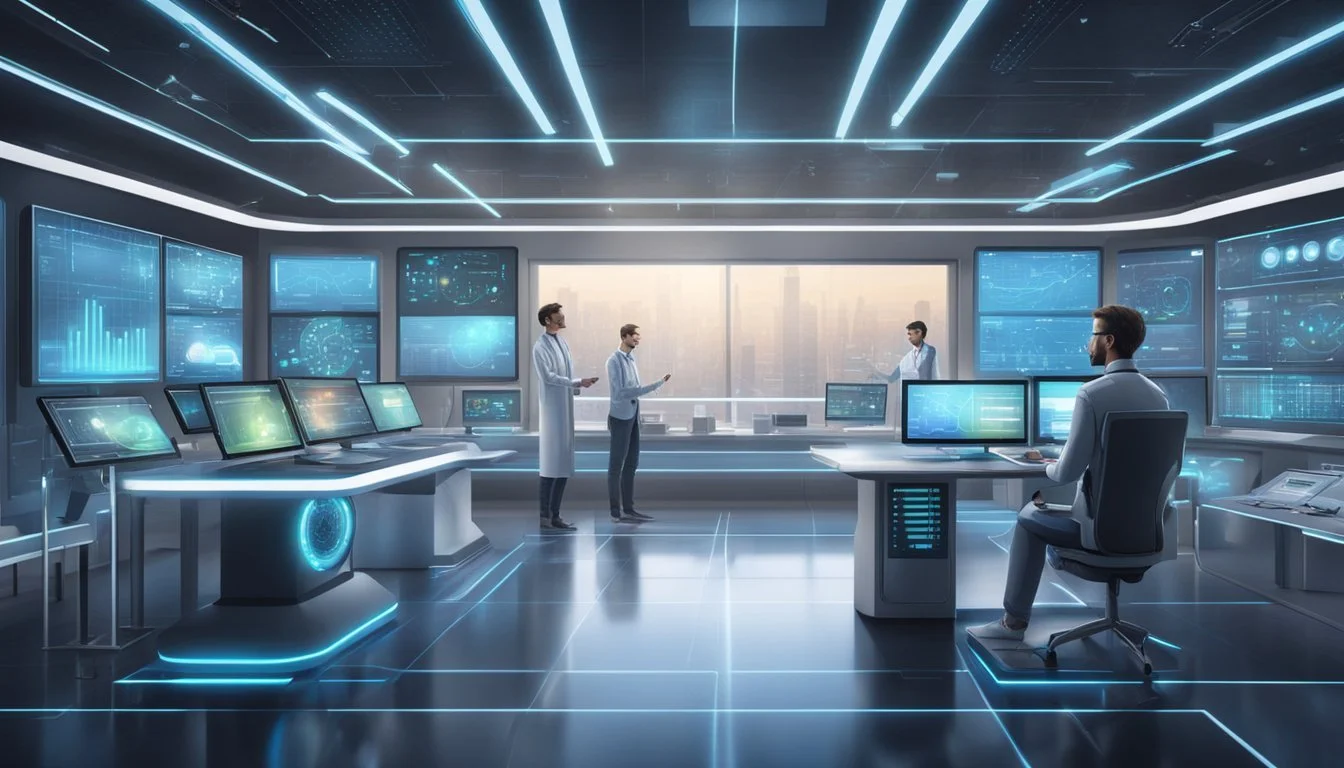10 Documentaries About Scientific Predictions That Actually Came True
Validating Visionary Forecasts
Scientific predictions have long captivated human imagination, offering glimpses into potential futures and shaping our understanding of the world. Documentaries exploring these predictions provide a fascinating look at how scientific foresight has influenced society and technological progress.
Exploring documentaries about scientific predictions that came true offers valuable insights into the power of scientific inquiry and its real-world impacts. These films showcase the accuracy of certain scientific forecasts, highlighting the importance of research and critical thinking in anticipating future developments. From climate change to technological advancements, these documentaries demonstrate how scientific predictions have shaped our modern world.
1) Back to the Future Part II
Back to the Future Part II, released in 1989, made several predictions about life in 2015 that have become reality. The film's vision of the future included technologies and societal changes that were considered far-fetched at the time.
One accurate prediction was the widespread use of video calls. Today, platforms like Skype and FaceTime have made this technology commonplace. The movie also depicted wearable technology, which has materialized in the form of smartwatches and augmented reality glasses.
Biometric technology, shown in the film for unlocking doors, is now used in smartphones and security systems. The movie's depiction of hands-free gaming has come true with devices like Microsoft's Kinect and Nintendo's Wii.
The film also foresaw the resurgence of 3D movies, which experienced a boom in the 2010s. While not exactly as portrayed in the movie, drones have become prevalent in various applications, from photography to delivery services.
These predictions demonstrate the film's impressive foresight into technological advancements and societal trends.
https://en.wikipedia.org/wiki/Back_to_the_Future_Part_II
2) Minority Report
Steven Spielberg's 2002 sci-fi thriller "Minority Report" envisioned a future where crime could be prevented before it occurred. The film's portrayal of predictive policing has since become a reality in some law enforcement agencies.
Gesture-based computing interfaces featured prominently in the movie. Today, similar technology exists in devices like the Xbox Kinect and virtual reality systems. The film also depicted personalized advertising that recognized individuals, which is now common through targeted online ads.
Retinal scanners for identification purposes were prevalent in "Minority Report." This technology has been implemented in various security systems and smartphones. The movie showcased autonomous vehicles, a concept that has made significant progress with self-driving cars being tested on roads today.
"Minority Report" accurately predicted the rise of voice-activated personal assistants, similar to modern AI assistants like Siri and Alexa. The film's depiction of advanced robotics and drones has also come to fruition in various industries.
https://en.wikipedia.org/wiki/Minority_Report_(film)
3) Gattaca
Gattaca, released in 1997, presents a dystopian future where genetic engineering determines social status. The film's predictions about genetic discrimination and the ethics of genetic modification have become increasingly relevant.
In the 25 years since its release, Gattaca has gained cult classic status. Its portrayal of a society divided by genetic profiles has sparked important discussions about the potential consequences of advanced genetic technologies.
The movie's vision of genetic testing and selection has partially come true. Today, genetic screening is used to identify potential health risks in embryos and newborns. However, the extreme genetic discrimination depicted in the film remains largely speculative.
Gattaca's exploration of the ethical implications of genetic engineering continues to resonate with scientists and ethicists. As gene-editing technologies like CRISPR advance, the film's themes become more pertinent to real-world debates.
While some of Gattaca's predictions remain in the realm of science fiction, its core message about the value of human potential beyond genetic makeup remains powerful and thought-provoking.
https://en.wikipedia.org/wiki/Gattaca
4) 2001: A Space Odyssey
Stanley Kubrick's 1968 science fiction masterpiece "2001: A Space Odyssey" made several remarkable predictions about future technology. The film, based on Arthur C. Clarke's short story, envisioned devices that would become reality decades later.
One of the most accurate predictions was the concept of tablet computers. In the movie, astronauts use flat, portable devices called "Newspads" to read news and watch video content. This technology closely resembles modern tablets and iPads.
The film also depicted video calls, a feature now commonplace in our daily lives. Characters in "2001" communicate through screens, mirroring today's widespread use of video conferencing tools.
Artificial intelligence played a central role in the film, with the sentient computer HAL 9000. While AI has not reached HAL's level of sophistication, significant advancements have been made in this field since the movie's release.
Space tourism, although not as routine as portrayed in the film, is becoming a reality. Private companies are now offering trips to space for civilians, echoing the commercial space travel depicted in "2001."
https://en.wikipedia.org/wiki/2001:_A_Space_Odyssey_(film)
5) The Matrix
The Matrix, released in 1999, presented a dystopian future where humans live in a simulated reality. This science fiction film explored concepts of artificial intelligence and virtual worlds that seemed far-fetched at the time.
Two decades later, many of the film's predictions have come to fruition. Virtual and augmented reality technologies have advanced significantly, allowing users to immerse themselves in digital environments.
The movie's depiction of AI-controlled systems and machine learning algorithms mirrors today's increasing reliance on smart devices and data-driven decision making. The concept of humans being constantly connected to a vast network is reflected in our current smartphone-centric culture.
The Matrix also predicted the rise of wearable technology and wireless communication devices. These innovations have become commonplace in modern society, with smartwatches and wireless earbuds now ubiquitous.
While we haven't reached the level of a fully simulated reality, The Matrix's vision of a world heavily influenced by technology and virtual experiences has proven remarkably prescient.
[https://en.wikipedia.org/wiki/The_Matrix]
6) Blade Runner
Blade Runner, released in 1982, made several prescient predictions about the future. Set in 2019 Los Angeles, the film envisioned a world with striking similarities to our present reality.
One accurate forecast was the prevalence of video calling. The movie depicted characters using phone booths for visual communication, a concept that materialized with the advent of Skype in 2003 and various video chat applications today.
Blade Runner also anticipated the rise of digital billboards and pervasive advertising. The film's cityscape featured massive electronic displays, eerily reminiscent of modern urban centers like Times Square or Tokyo's Shibuya Crossing.
The movie explored themes of artificial intelligence and the ethical implications of creating humanoid robots. While we haven't achieved Blade Runner's level of AI, significant advancements have been made in this field, raising similar ethical questions.
Climate change and its effects on urban environments were another aspect the film accurately portrayed. The perpetually gloomy, rain-soaked Los Angeles in Blade Runner reflects growing concerns about environmental degradation in major cities.
7) Her
"Her" is a thought-provoking science fiction film that explores the relationship between humans and artificial intelligence. Set in a near-future Los Angeles, the movie follows Theodore Twombly as he develops a deep emotional connection with an AI operating system named Samantha.
The film's portrayal of advanced AI capable of complex emotions and relationships has proven eerily prescient. As AI technology continues to evolve rapidly, the ethical and emotional implications depicted in "Her" have become increasingly relevant.
Director Spike Jonze's vision of ubiquitous AI assistants integrated into daily life mirrors the rise of virtual assistants like Siri, Alexa, and Google Assistant. The film accurately predicted the growing role of AI in personal and professional spheres.
"Her" also explores themes of digital consciousness and the potential for AI to develop beyond human comprehension. These concepts have become central to discussions about the future of AI and its impact on society.
https://en.wikipedia.org/wiki/Her_(film)
8) Ex Machina
Ex Machina explores the concept of artificial intelligence and its potential to surpass human cognition. Released in 2014, the film presents a thought-provoking scenario of advanced AI development.
The movie portrays Ava, an artificially intelligent humanoid robot, undergoing a Turing test. This test aims to determine if a machine can exhibit intelligent behavior indistinguishable from a human.
Ex Machina's depiction of AI capabilities aligns with recent advancements in machine learning and natural language processing. The film's exploration of AI ethics and consciousness has become increasingly relevant in today's technological landscape.
While not a documentary, Ex Machina's portrayal of AI development has proven to be prescient. The film's themes resonate with current debates surrounding AI safety and the potential implications of highly advanced artificial intelligence.
Ex Machina's vision of humanoid robots with sophisticated AI is gradually becoming a reality. Recent developments in robotics and AI are bringing us closer to creating machines that can engage in complex interactions and decision-making processes.
[https://en.wikipedia.org/wiki/Ex_Machina_(film)]
9) Jurassic Park
Jurassic Park, the 1993 science fiction film directed by Steven Spielberg, made a significant impact on popular culture and scientific discourse. The movie's premise of resurrecting dinosaurs through genetic engineering sparked public interest in paleontology and biotechnology.
While not a documentary, Jurassic Park's depiction of genetic engineering and cloning techniques proved prescient. The film introduced concepts like extracting DNA from fossilized amber, which scientists have since attempted in real-world research.
The movie's portrayal of dinosaur behavior and physiology was based on cutting-edge paleontological theories of the time. Some of these ideas, such as the intelligence of Velociraptors and the possibility of birds evolving from dinosaurs, have gained scientific support in subsequent years.
Jurassic Park's influence extended beyond entertainment, inspiring a new generation of scientists and researchers. The film's success led to increased funding and interest in paleontology and genetics, accelerating discoveries in these fields.
10) The Terminator
James Cameron's 1984 sci-fi classic "The Terminator" envisioned a dystopian future where artificial intelligence becomes self-aware and turns against humanity. The film's central concept of AI evolving beyond human control has proven remarkably prescient.
Today, AI systems are advancing rapidly, with capabilities that were once confined to science fiction. Machine learning algorithms now make complex decisions in various fields, from finance to healthcare.
While we haven't seen Skynet or humanoid assassins from the future, the ethical concerns surrounding AI development mirror those explored in the film. Researchers and policymakers grapple with questions of AI safety and control.
The movie's depiction of ubiquitous surveillance and data collection also foreshadowed our current digital landscape. Smartphones, social media, and IoT devices now generate vast amounts of personal data.
"The Terminator" serves as a cautionary tale about the potential risks of unchecked technological advancement. Its enduring relevance highlights the importance of responsible AI development and governance.
[https://en.wikipedia.org/wiki/The_Terminator]
Impact of Scientific Predictions
Scientific predictions have shaped our understanding of the world and driven technological progress. These forecasts have influenced research priorities, policy decisions, and public perceptions of science.
Understanding Historical Context
Scientific predictions emerge from the knowledge and tools available at a given time. In the past, limited data and rudimentary instruments often led to inaccurate forecasts. Despite this, some predictions proved remarkably prescient.
H.G. Wells, for instance, anticipated the development of atomic bombs decades before their creation. His insights stemmed from early understanding of atomic theory and extrapolation of scientific trends.
Similarly, John Elfreth Watkins Jr. correctly predicted television in 1900, showcasing how scientific understanding can lead to accurate technological forecasts.
Implications for Future Discoveries
Accurate scientific predictions often guide future research and development. They highlight promising areas of study and potential technological breakthroughs.
Climate change predictions, for example, have spurred extensive research into renewable energy and sustainable technologies. These forecasts have influenced global policies and industrial practices.
Predictions in fields like artificial intelligence and quantum computing are shaping current research priorities. They drive investment in specific technologies and inform long-term planning in various sectors.
Accurate predictions also build public trust in science, encouraging support for further research and scientific education.
Case Studies of Accurate Predictions
Scientific predictions have shaped our understanding of the world and guided technological advancements. Some forecasts made decades or even centuries ago have proven remarkably accurate, demonstrating the power of scientific reasoning and foresight.
Historical Examples
H.G. Wells predicted the atomic bomb in his 1914 novel "The World Set Free". He described uranium-based hand grenades that would continue exploding indefinitely. This eerily foreshadowed the development of nuclear weapons during World War II.
In the 1660s, Robert Boyle envisioned organ transplants centuries before they became a reality. His prescient insight came nearly 300 years before the first major organ transplant in 1954.
Mark Twain accurately predicted his own death. Born in 1835 during an appearance of Halley's Comet, Twain stated he would "go out with it" when it returned. He died in 1910, the day after the comet's next closest approach to Earth.
Modern Day Impacts
Accurate predictions continue to shape our world today. Climate models from the 1970s and 1980s have proven remarkably precise in forecasting global temperature rises and their effects.
The Human Genome Project, completed in 2003, fulfilled predictions about mapping human DNA. This achievement has revolutionized medical research and personalized medicine.
Moore's Law, formulated in 1965, correctly predicted the doubling of computer processing power every two years. This forecast has guided the rapid advancement of digital technology over the past decades.
Predictions about renewable energy adoption have also proven accurate. Many forecasts from the early 2000s correctly anticipated the dramatic drop in solar and wind power costs, driving their widespread implementation today.





